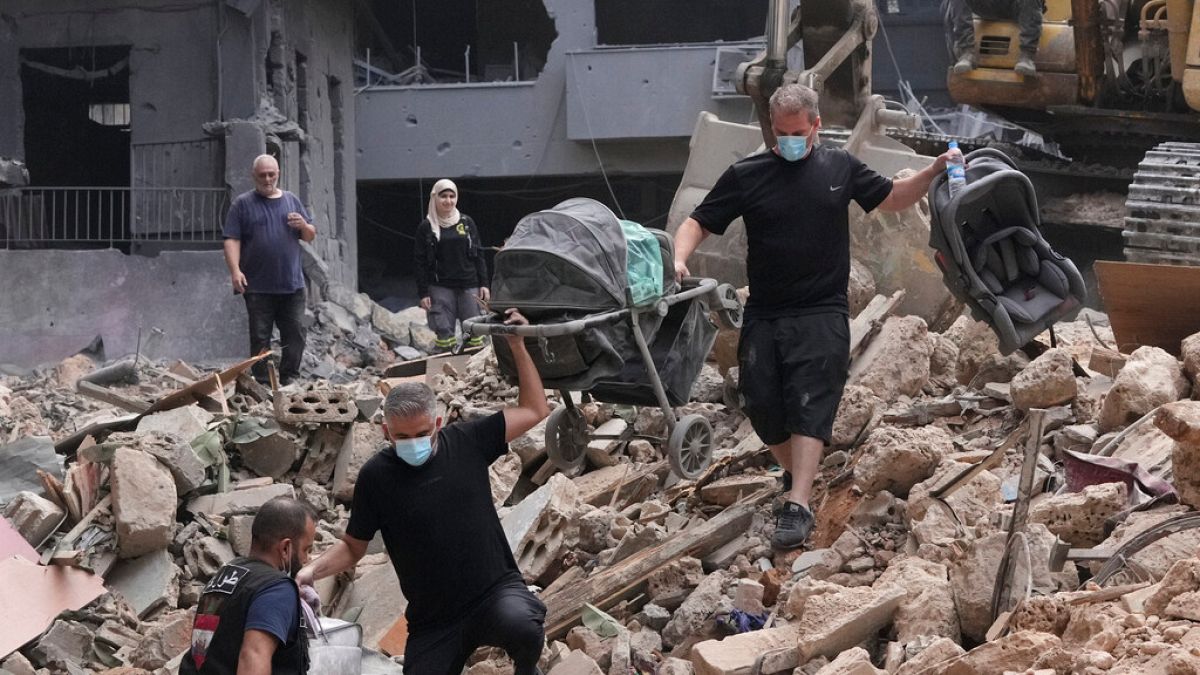The ongoing conflict in the Middle East has increased tensions and resulted in heavy casualties in Gaza and Lebanon. As Israeli airstrikes continue to target Hamas and Hezbollah strongholds, civilians have been caught in the crossfire, leading to a dire humanitarian crisis. The United Nations has raised concerns over the lack of food aid entering northern Gaza since October 1st, exacerbating an already precarious situation for thousands of Palestinian families. The closure of the primary border crossing has left the north essentially cut off, with limited access to supplies and services, forcing aid agencies to suspend operations in the region.
The World Food Program (WFP) has reported that the Israeli offensive has disrupted food distribution points, kitchens, and bakeries in northern Gaza, leading to shortages of essential supplies. A bakery supported by WFP was destroyed in an airstrike, further limiting access to food for displaced families. The situation has forced thousands to seek refuge in shelters and health facilities in Gaza City, with no clear timeline for when aid operations can resume in the northern areas. The consequences of prolonged hostilities could be catastrophic for vulnerable populations, with concerns of a hunger crisis looming over the region.
The escalating violence has resulted in a significant loss of life in Gaza and Lebanon, with local health authorities reporting over 42,000 Palestinian deaths, including women and children. The destruction of homes, infrastructure, and displacement of the majority of the population has created a dire humanitarian situation, requiring urgent international intervention to prevent further loss of life. In Lebanon, Israeli airstrikes have targeted civilian areas, resulting in casualties and widespread destruction, escalating tensions in the already volatile region.
The Israeli military’s offensive in northern Gaza and Lebanon has drawn condemnation from the international community, with calls for an immediate ceasefire to prevent further loss of life. The targeting of peacekeeping forces in Lebanon and continued airstrikes have raised concerns of escalating conflict in the region, with potential ripple effects throughout the Middle East. The involvement of Iran, a key backer of Hezbollah, has further complicated the situation, with political and military alliances shaping the dynamics of the conflict.
The joint US military operation against ISIS camps in Syria represents a separate but related aspect of the ongoing conflict in the Middle East. The airstrikes aimed at disrupting ISIS operations and preventing future attacks on US interests and allies demonstrates the complexity and scope of the regional security challenges. The presence of US forces in Syria underscores the global implications of the conflict, with multiple actors involved in shaping the outcome of the crisis, highlighting the need for coordinated international efforts to address the root causes of instability in the region.
In conclusion, the humanitarian crisis in Gaza and Lebanon underscores the urgent need for a peaceful resolution to the conflict, with a focus on protecting civilian lives and ensuring access to essential services. The lack of food aid, destruction of infrastructure, and mass displacement of populations highlight the devastating impact of the ongoing violence, requiring immediate action to address the root causes of the crisis. International intervention and diplomatic efforts are essential to de-escalate tensions, promote dialogue, and restore stability in the region, preventing further loss of life and ensuring humanitarian assistance reaches those most in need.










